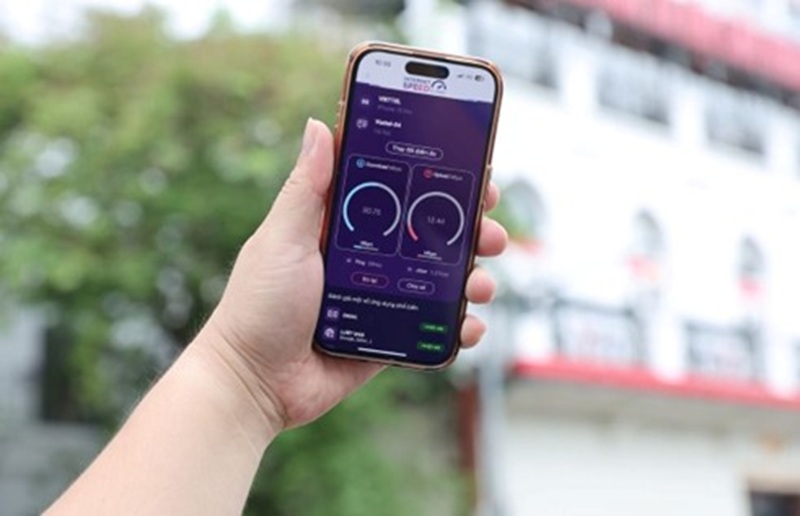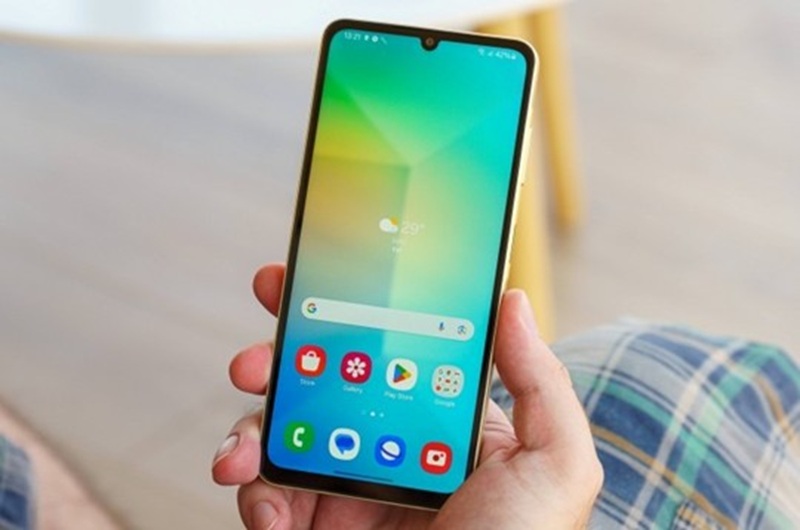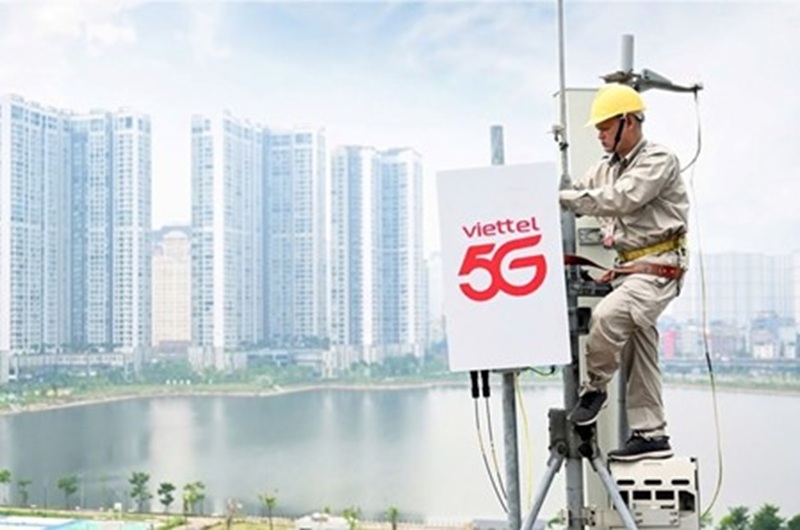Users change, retailers expect
No longer a concept of far-reaching technology, 5G is now becoming a real factor affecting shopping decisions of Vietnamese consumers. While network operators are accelerating the deployment of infrastructure, at the forefront of the market - mobile retail systems - are clearly feeling the change in customer behavior and needs.
From the psychology of exploration, users have switched to proactively choosing devices that support 5G. And according to many large retailers, this wave is not just a short-term technology fever, but is becoming a sustainable consumer trend.
According to the representative of The Gioi Di Dong, the rate of customers choosing 5G smartphones is increasing and 5G is one of the three main spearheads to promote the domestic smartphone market (along with AI and NFC).

Meanwhile, at FPT Shop, the proportion of 5G-enabled smartphones in total sales has increased to 70% in the first half of 2025, compared to only 50% in the same period last year. The system representative said that consumers are currently asking the question "Is this device 5G?" as a basic criterion, even in the segment under 5 million VND.
Di Dong Viet also recorded a similar trend. According to Ms. Nguyen Thi Kim Van - Marketing Director, the proportion of 5G phones sold has accounted for 72%, with the mid-range segment of 710 million VND recording the strongest consumption. Users no longer approach 5G out of curiosity, but have considered it a standard when choosing a new smartphone.
At Viettel Store, the proportion of 5G devices currently accounts for about 80% of total business products. It is expected that this figure will exceed 90% in the third quarter of this year. Notably, shoppers at stores are no longer focusing on high-end models, but are prioritizing mid-range lines with stable performance, modern design and especially 5G integration - which shows that the popularity is approaching mass users.
Cheaper devices, stronger infrastructure the opportunity to popularize 5G
One of the important reasons driving the growth of 5G smartphones is the fact that the price of the device has been significantly reduced. If in 2023, 5G was only popular in the segment of over 10 million VND, now, users can completely own a device that supports this technology with a price range from 3 to 4 million VND. Products such as the Galaxy A06 5G (3.7 million VND), TCL 60R (2.99 million VND) or Oppo's Reno line are contributing to pushing the price level down to more accessible levels than ever.

It is noteworthy that many of these devices have such an attractive sales policy thanks to cooperation programs between the network operator and manufacturers. Viettel, as a pioneer network operator in deploying 5G commercialization in Vietnam, has joined hands with both Oppo and Samsung to deploy device popularization programs. Specifically, campaigns such as selling devices with packages with special subsidies, giving away free data or organizing device testing programs in coverage areas have helped the number of people accessing 5G increase significantly in just a few months.
Along with cheap equipment, wide coverage is also a factor that makes consumers feel secure when upgrading. As the first network operator to officially operate 5G since October 2024 with national coverage, Viettel has quickly expanded its infrastructure, put into operation more than 10,000 5G broadcasting stations, covering large urban areas and gradually spreading to key provinces and districts.
Not only focusing on the number of stations, Viettel is also a pioneer in simultaneously deploying an independent 5G (SA) network - allowing up to 1 Gbps of download speed and reducing latency to almost zero - an important platform for future applications such as IoT, digital healthcare, smart factories.
From the retail side, infrastructure is the decisive lever to "close the deal". Consumers will not be willing to buy a device if they have not experienced the real 5G network. On the contrary, once the access speed is fast enough, the signal is stable and the coverage is wide enough, convincing users to switch to a new device becomes much easier.
This explains why retailers are actively expanding their 5G device portfolio, even no longer trading in new smartphone models that do not support 5G - simply because demand has almost reversed.
Viettel and the strategy of "publicizing 5G" in a systematic manner
Not only leading in infrastructure, Viettel is also one of the few network operators in Vietnam to comprehensively deploy a 5G development strategy. In addition to cooperating with major phone companies to bring cheap devices to consumers, Viettel is also actively launching incentive packages such as giving away 5G data from 10 to 30 GB/month, free experience for new subscribers or first-time customers using 5G. These moves are not only stimulating, but also create momentum to form the habit of using large bandwidth in the general user community.

In the eyes of retailers, it is the initiative from the network that has helped the device market catch up with the trend. We believe that the role of network operators is very important in popularizing 5G. Obviously, when there is a suitable infrastructure, manufacturers are ready to launch end devices, and at the same time, with programs/ data packages at suitable prices, it will contribute to promoting the popularization of 5G more strongly, said Mr. Tran Duc Tin - Director of mobile phone industry of The Gioi Di Dong.
FPT Shop, Di Dong Viet or Viettel Store all share the same view that without good enough infrastructure, consumers will have no reason to buy new devices. On the contrary, when the network speed has met expectations, the need for upgrades will come very quickly - even exceeding the ability to provide equipment during some peak times in early 2025.
The panoramic picture shows that the market is operating in the right direction. Consumers are ready, retailers are changing and the network operator typically Viettel is still steadfast in its role as a guide.
If this momentum continues to be maintained, the question is no longer "When will 5G explode", but "When will it become the default of digital life in Vietnam?".







